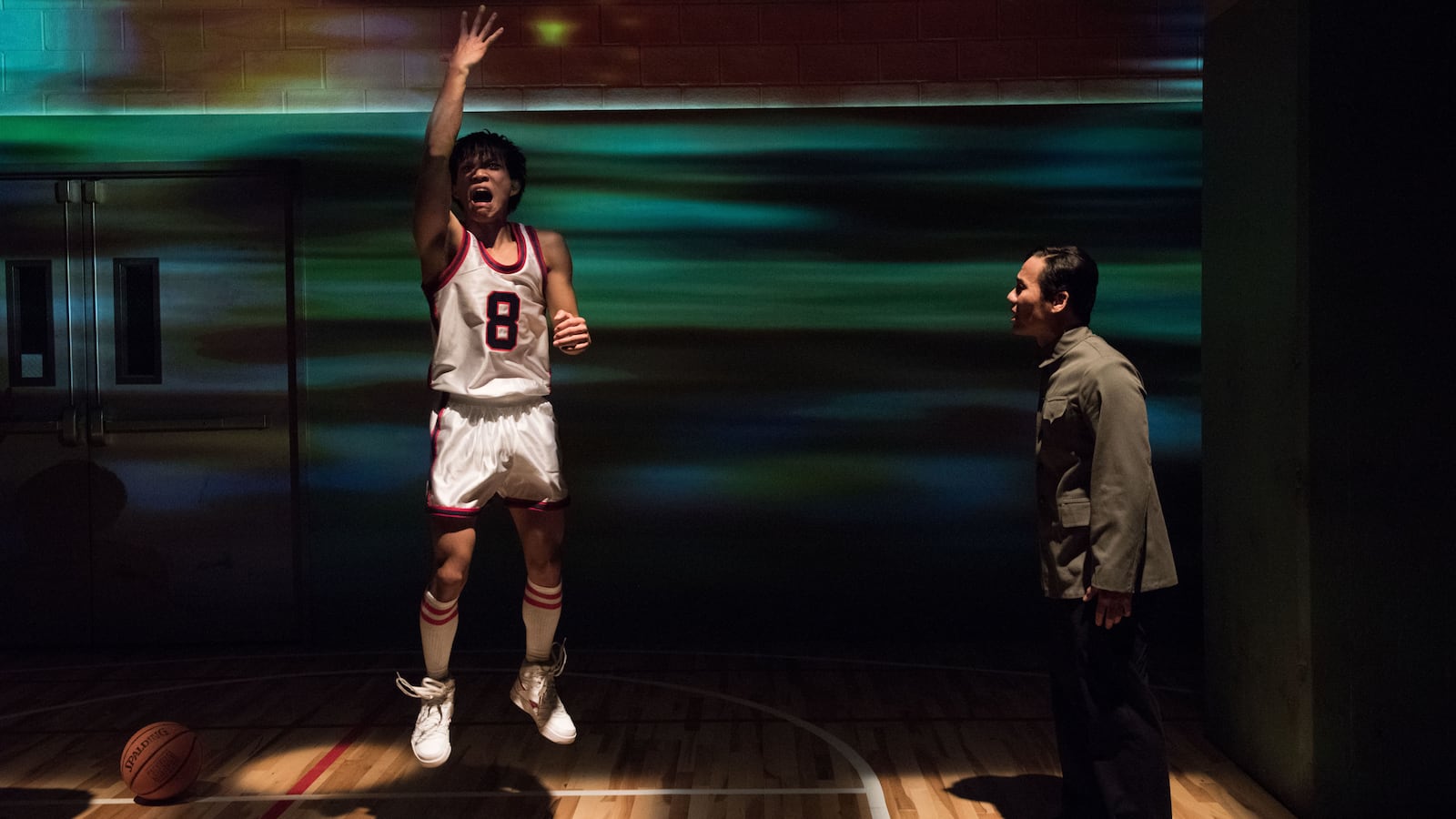Lauren Yee’s The Great Leap, now at the Atlantic Theatre’s Stage 2 in New York City, is such a fluent piece of playwriting, set around a terrible and notorious historical event, that you will go home and Google elements of it immediately. We know the Tiananmen Square protests happened in June 1989. But can the other events Yee crafts around the protests be true?
The basketball matches she sketches are evoked in grainy newspaper clippings, so seem real. Even if the final twist of the play means we see the play’s central “leap”—one of invention—it never damages its inner plausibility.
Yee’s play, directed at a slick clip by Taibi Magar, works as both a culture-clash drama and comedy. The award-winning Yee has also written a family drama, and a salty interrogation on identity, both personal and racial.
In the play’s dual settings of 1971 and 1989, the foul-mouthed Saul (Ned Eisenberg) is a basketball coach, focused on winning as macho-obnoxiously as possible. In 1971, he was sent to China to help mild-mannered Communist Party official Wen Chang (B.D. Wong) craft a championship basketball team. These “trees” would take till 1989 to become the 6-foot-plus formidable opponents Saul returns to Beijing to face with the American team he trains in San Francisco.
In 1971, we laugh as Saul goes to Beijing to train Wen Chang in deceiving, provoking and insulting one’s opponents. If Eisenberg is a volcano of grandstanding profanity, Wong is his icy, measured opposite, edging nervously around swearwords and unsportsmanlike behavior.
Eighteen years later, Chinese-American Manford (Tony Aidan Vo) is a kinetic jumble of aggression and determination. He wants to play basketball. He wants Saul to take him to China. He has another reason to go all that way too: a family mystery, a question of parentage, because his family in America is a non-blood family represented by the loving and no-bullshit “cousin” Connie (the crisply direct Ali Ahn).
The key scenes of revelation and confrontation are not only sensitively written, they are woven into the 1989 basketball game, and the Tiananmen protests happening concurrently. Takeshi Kata’s design implies a basketball court, without any nets and barely a ball thrown. David Bengali’s projections and Eric Southern’s lighting economically take us across the world, and right into the terrible heart of the protests.
The Great Leap comes to connote varying significances to the characters. There is the dazzling skill of Manford on the court, the possibility of a glittering future in the game, and his leap to find out who he really is. There are the tentative-then-great leaps of Wen Chang, as he also faces up to some truths that he knows and the personal cost he must confront if he does the right thing to acknowledge them.
Saul and Connie too have other leaps to make, of understanding their own unseen loved ones. Arguably, Eisenberg’s greatest leap are the unforgiving, and all-leg-displaying short shorts he wears (costume designer Tilly Grimes’ most audacious bit of styling).
If the play flags slightly when its political preoccupations overshadow the characters, it doesn’t seem a foul deserving of the referee’s whistle. The play is a believable encapsulation of history, and a respectful reclamation of the same. In Yee’s own graceful leap, one of history’s faceless is given a face, and a justly realized story.
The Great Leap is at the Atlantic Stage 2, 330 West 16th Street, New York City, until June 23. Book here.






